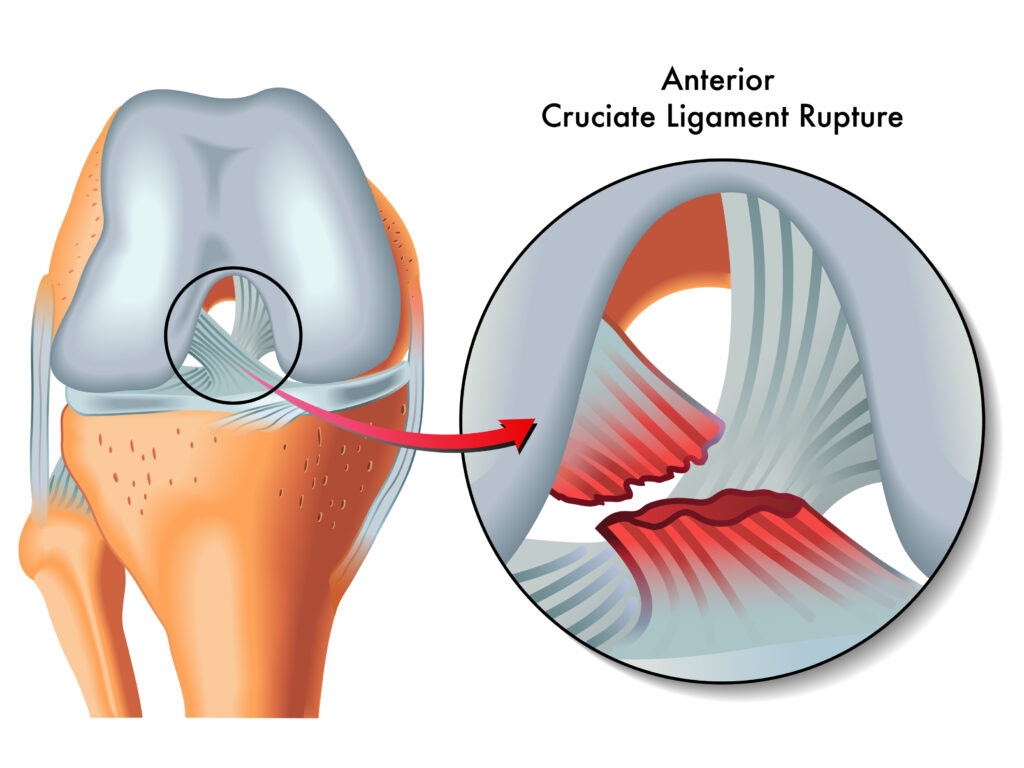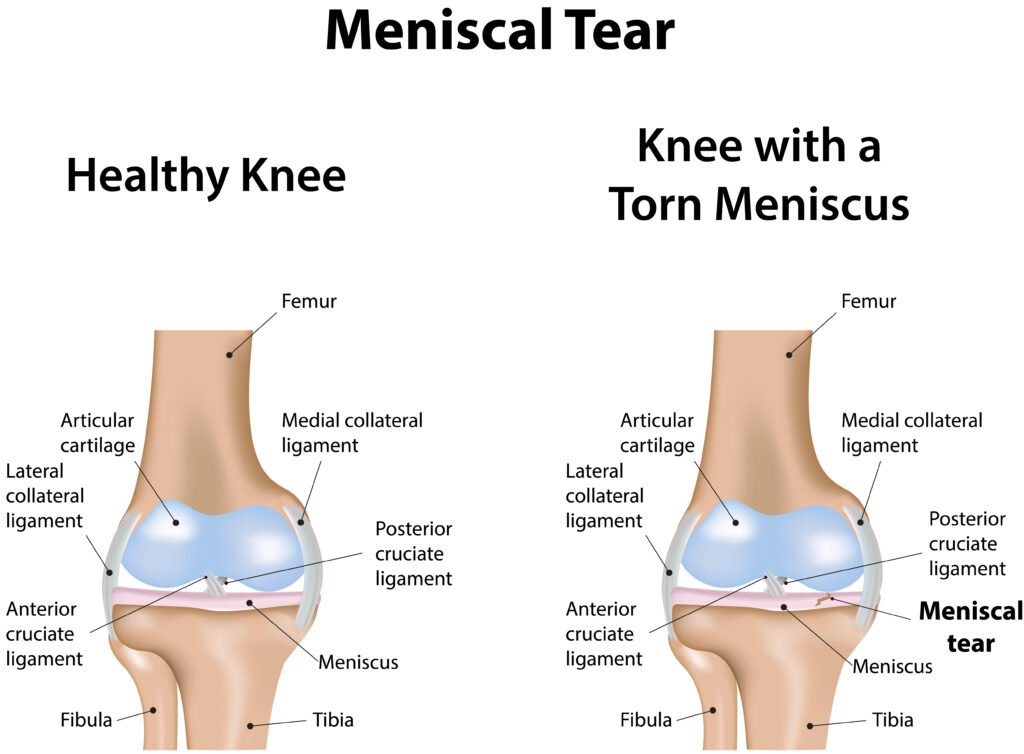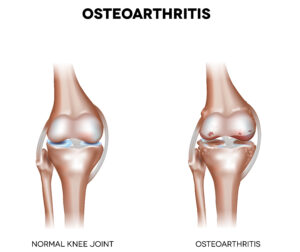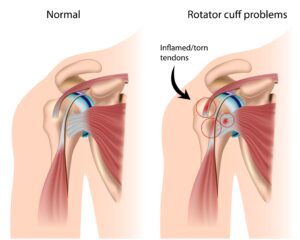

The anterior cruciate ligament (ACL) is the most commonly injured ligament in the knee. The ACL is important for knee stability during standing, walking, running etc. A torn ACL will impair the knee function and the patient will be unable to do heavy activities like sports. The patient with an ACL injury will feel that his knee is unstable and painful.
ACL injury also has the long term complication of knee osteoarthritis because the instability of an ACL tear will wear out the knee cartilage. Patients with knee osteoarthritis will feel that their knees are stiff and painful.
ACL injuries often occur with meniscus tears. The meniscus is the ‘shock absorber’ structure in the knee. If your meniscus is torn, the ‘shock absorber’ function is impaired and this leads to knee osteoarthritis in the future. Patients with meniscus tears will complain of knee pain or the feeling of a ‘locked knee’ (the knee gets stuck during bending and straightening of the knee). A combined ACL tear and meniscus tear leads to earlier development of knee osteoarthritis.
As such, the ACL and meniscus are both important to maintain stability of the knee and protect the health of the knee cartilage (by preventing cartilage wear /osteoarthritis).
Therefore, if the ACL and meniscus are injured resulting in knee pain or instability, the best treatment option is surgery. Surgery involves arthroscopic ACL reconstruction and meniscus repair. This surgery will fully restore the knee function and preserve the knee health for the long term.


